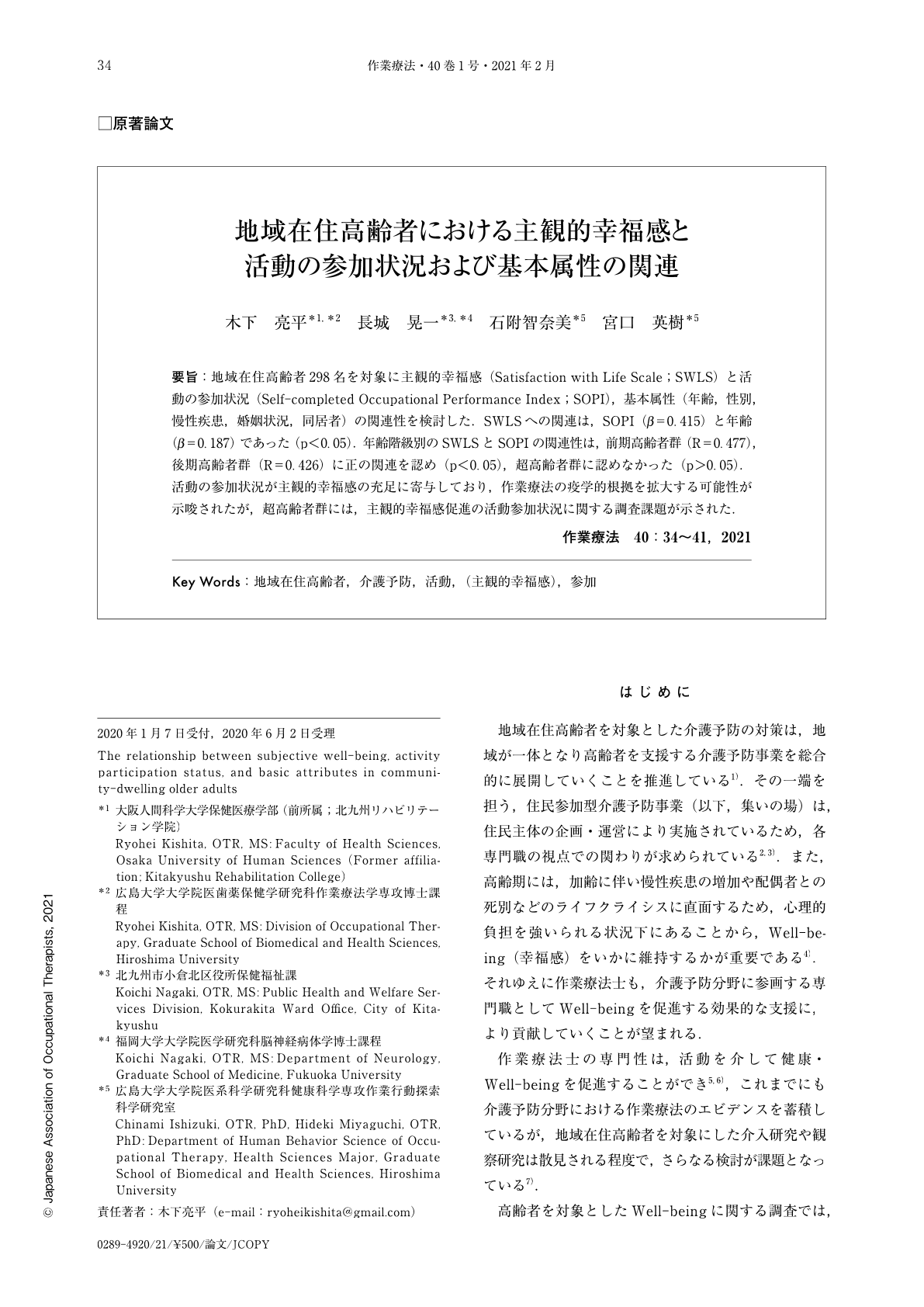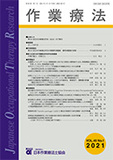Japanese
English
- 販売していません
- Abstract 文献概要
- 1ページ目 Look Inside
- 参考文献 Reference
- サイト内被引用 Cited by
要旨:地域在住高齢者298名を対象に主観的幸福感(Satisfaction with Life Scale;SWLS)と活動の参加状況(Self-completed Occupational Performance Index;SOPI),基本属性(年齢,性別,慢性疾患,婚姻状況,同居者)の関連性を検討した.SWLSへの関連は,SOPI(β=0.415)と年齢(β=0.187)であった(p<0.05).年齢階級別のSWLSとSOPIの関連性は,前期高齢者群(R=0.477),後期高齢者群(R=0.426)に正の関連を認め(p<0.05),超高齢者群に認めなかった(p>0.05).活動の参加状況が主観的幸福感の充足に寄与しており,作業療法の疫学的根拠を拡大する可能性が示唆されたが,超高齢者群には,主観的幸福感促進の活動参加状況に関する調査課題が示された.
The purpose of this study was to investigate the relationships between subjective well-being (Satisfaction with Life Scale: SWLS), activity participation status (Self-completed Occupational Performance Index: SOPI), and basic attributes (age, sex, chronic illness, marital status, and living together) in 298 community-dwelling older adults. As a result, SOPI (β=0.415) and age (β=0.187) were related to SWLS (p<0.05). Furthermore, as a result of investigating the relationship between SWLS and SOPI by age group, connections were found (p<0.05) in the young-old group (R=0.477) and the old-old group (R=0.426), but not in the oldest-old group (p>0.05). These results suggest that activity participation status may contribute to subjective well-being, expanding the epidemiological evidence of occupational therapy. However, in the oldest-old group, the problem of investigating the activity participation status of contributing to subjective well-being became shown.

Copyright © 2021, Japanese Association of Occupational Therapists. All rights reserved.


